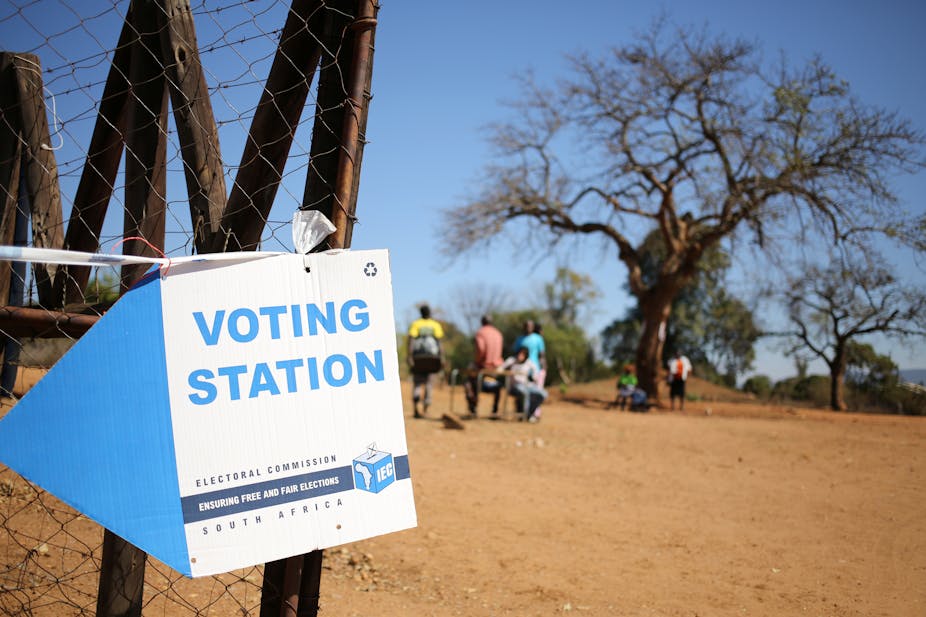What is the best way to resolve conflicts in a democracy? This question took centre stage in South Africa after the University of the Witwatersrand (known as Wits) set up an electronic poll to ask students and staff whether classes should resume.
In a statement explaining what motivated the poll, the university said it hoped to “clearly understand the views of the wider Wits community”. It sent SMSes to students asking them to vote “yes” or “no” for reopening. Perhaps the university hoped that if students voted for reopening, continued protest would be delegitimised.
The use of a poll to inform this kind of decision was a new and unusual strategy for responding to university protests in South Africa. It has also not been practised widely at universities elsewhere. At state level polls are often used to decide on controversial issues. Recent examples include the Brexit and Colombian referenda.
Protesting students and their supporters condemned the poll. They even tried to get a court interdict preventing the electronic poll from going ahead. Their arguments against it varied: some accused it of going against university laws; others doubted its anonymity.
The poll’s opponents argued that an open student assembly would be a better way to gauge people’s views. There, they suggested, university managers could openly and thoroughly engage with the student body.
But the poll also had many supporters. For example, the governing African National Congress’ Youth League said that any vote of this nature “deepens democracy”. South Africa’s main opposition party, the Democratic Alliance, was also supportive. This view holds that if most students and staff wish to return to classes, their interests should prevail over those of the minority who wish to continue the shutdown.
Supporters of the poll draw on longstanding traditions associated with democracy, such as using voting to make decisions and acting in accordance with the will of the majority.
Does this mean the poll’s opponents are anti-democratic? Not necessarily. There are several different ways to approach democracy.
Approaches to democracy
One way to distinguish is to draw a contrast between procedural and normative approaches.
Procedural approaches regard outcomes as democratic if particular procedures, usually elections, have been followed. Those who advocate such approaches argue that precise definitions of democracy which link it to concrete procedures – such as elections and referenda – are more useful than vague definitions which refer to ideals like equality and liberty.
In this view, if the majority of students want Wits to reopen and express this wish in a fair, properly audited procedure, reopening the university is the democratic thing to do. Indeed, this is exactly what happened. The university reopened after 77% of the students who responded to the poll voted to resume classes. It should be noted, however, that only 59% of Wits’ enrolled students responded to the poll.
The outcome didn’t deter the protesters. The university reopened to continued protest and police presence which resulted in several injuries and arrests. By midweek, the university was shut again.
Procedural approaches to democracy are not above criticism. Theorists like Rita Abrahamsen and Claude Ake argue that democracy is diminished if it is reduced to procedures like elections.
These theorists favour a normative approach to democracy. In this view, democracy is understood as a system of government which promotes participation, equality, tolerance and liberty. Elections, while important, should not be the only way in which people can influence government. From this perspective, socioeconomic inequalities need to be addressed as democracy is about real equality rather than just equality on voting day.
If understood in this way, protesting students can defend their actions as being in the interests of democracy. They would argue that their protests are aimed at achieving greater equality: they’re opposing the continued exclusion from higher education of those who cannot afford it. Inequalities in educational access can be seen to undermine democracy. Education is a gateway to a range of opportunities to achieve political power or to influence powerful actors.
In line with this approach, protesting students insisted that an open and inclusive student assembly would be a better way forward.
A democratic mandate?
When the poll’s results were released, former opposition leader Helen Zille tweeted that the university management now had a “democratic mandate” to reopen.
It’s not that simple.
Advocates and opponents of the poll can draw on different aspects of the democratic tradition to defend their choices. Also and importantly, South Africans must recognise that the difficulty of resolving this particular crisis is related to the broader failure to achieve a deeper, more substantive kind of democracy than the kind embodied by regular elections and majority rule.
South Africa has a procedural democracy, but it’s certainly not characterised by equality or meaningful participation in political processes. It is one of the most unequal societies in the world. And although it holds free, fair elections on schedule, there are few opportunities beyond voting days for citizens to hold public officials to account or to influence policy.
Most commentators will surely agree that improving access to quality education for all would assist in deepening democracy. But what remains a matter of fierce debate is the question of how best to widen access.

